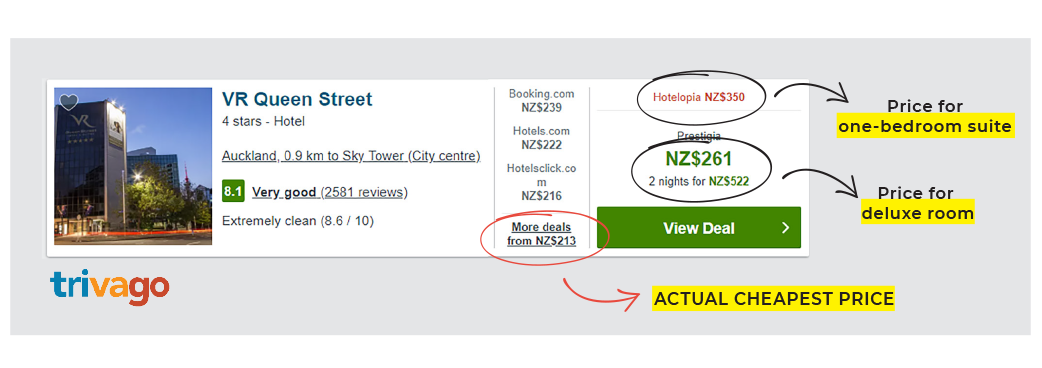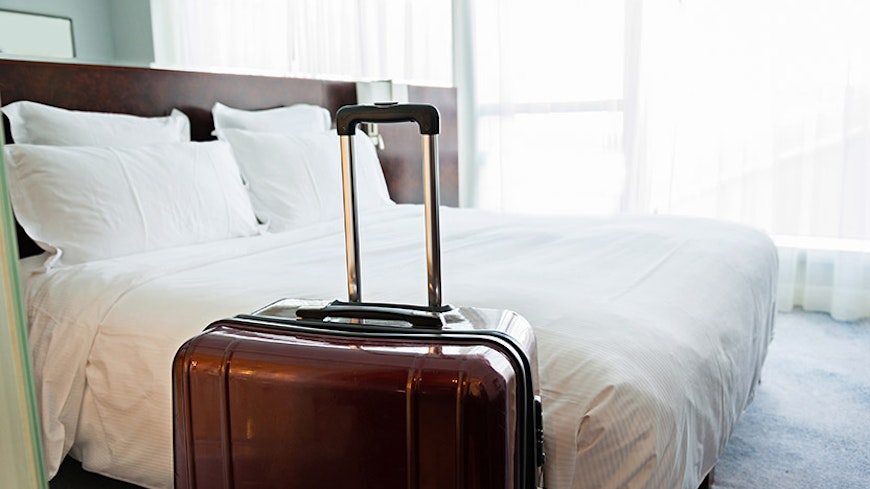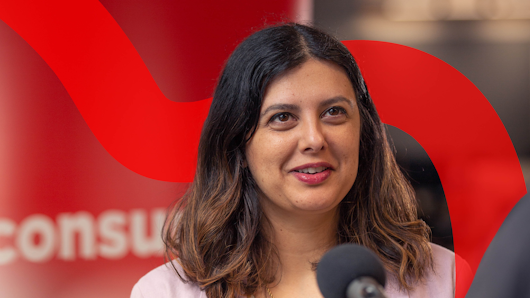
By Olivia Wannan
Former Investigative Writer | Kaituhi Mātoro
Trivago’s ads promise to find you “the ideal hotel for the best price”. But our price survey found the website frequently obscured the cheapest deals, while exaggerating the savings you’ll gain.
When you type in your destination and dates, Trivago collects prices from a range of booking websites and presents you with a list of recommended hotels and “deals”.
In its advertising, it comes across as an impartial website where you’ll find hotel-room bargains. But if you assumed Trivago’s “best price” offer was the lowest price, you’d be wrong.
Best price?
We put Trivago’s “best price” to the test by surveying the website’s accommodation recommendations for a weekend stay in Auckland and one-night stay in Christchurch.
Across our three-week survey, half the time the “deal” Trivago highlighted was more expensive than the cheapest option it found.
Sometimes this was only by a couple of dollars. However, the difference ranged up to $63 a night: Trivago highlighted a $299 price per night at one Auckland hotel even though its search results turned up a price of $236 a night on another website.
You’ll need to be eagle-eyed to spot this. The first thing you’re likely to see is the promoted deal. It’s easy to miss the link in smaller font to “More deals”.
It’s only when you click on the “More deals” box that you get a comparison of all booking websites from least to most expensive.
Sometimes these deals are cheaper than Trivago makes out. In one search, the website showed “More deals” for the Hotel Grand Windsor Auckland started at $342. But when we clicked this link, two websites were listed with a cheaper rate, ZenHotels ($314) and HotelsClick ($316).

We think it would be easy for customers to miss the “More deals” box and simply assume the highlighted deal was the cheapest, potentially costing them money.
Trivago’s results also commonly compared the price of the most expensive website it found, displaying it in red, against its recommended deal. This gives the consumer the impression that by using Trivago, they’re saving significant amounts of money.
However, when we went to the “expensive” websites, we found Trivago’s comparisons were like-for-like just 13% of the time (see “Survey results”).
For the Jet Park hotel near Auckland airport, Trivago contrasted the $183-a-night cost of a standard room on Hotel Quickly with the $489 price of a one-bedroom apartment on Sembo, despite the latter also having standard rooms available.
Trivago also contrasted the price of a double room at Auckland’s Skycity hotel on Amoma ($455 per night) against Expedia ($355 per night). However, the Amoma deal included breakfast, whereas Expedia’s package didn’t.
Legal action
Trivago admits its recommendations algorithm “take[s] into account the compensation booking sites provide us with” alongside other “relevant factors”.
However, the Australian Competition and Consumer Commission (ACCC) is taking the company to court, alleging its television advertisements and website breach Australian fair trading laws.
ACCC chair Rod Sims said Trivago based its rankings on the highest cost per click it would receive from advertisers.
“We allege that because of the design of Trivago’s website and representations made, consumers were denied a genuine choice about choosing a hotel deal … We also allege that by not making genuine room price comparisons, consumers would likely have paid more than they otherwise would have for the same hotel.”
New Zealand’s Fair Trading Act also prohibits misleading and deceptive conduct. However, the Commerce Commission is taking a wait-and-see approach. “We have noted the allegations by the ACCC against Trivago and we will be following the outcome of the Federal Court proceedings,” a spokesperson said.
We’ve sent the Commerce Commission our findings and asked it to investigate.
Trivago didn’t answer our questions about its website and marketing tactics, but sent through a statement about the ACCC action.
“We are disappointed by the action the ACCC has chosen to take in relation to Trivago and will vigorously defend our interests,” the company said.
Hurry – one room left!

Hotel websites often encourage you to book right away by advising there are just a few rooms left during your search period. But our price survey found you can take these statements with a grain of salt.
A week into our survey, Booking.com warned us the Copthorne Auckland was “in high demand – only two rooms left” for our desired dates in November. Agoda similarly highlighted “our last two rooms” alongside its search results. Expedia, Hotels.com and Wotif specified “we have two left at $430”. All five websites offered the two-night stay for the same price.
A week later, all websites showed the hotel as sold out for our travel dates. Yet by the end of that week, four more rooms had become available on all five sites, again at the $430 non-refundable price.
Booking.com (which owns Agoda) and Expedia (which owns Hotels.com and Wotif) said the hotels control the rooms they list and the pricing. The hotels choose whether they list all, or only some, of the rooms available for any given date on these sites.
Millennium Hotels, the owner of the Copthorne chain, didn’t respond to our inquiry.
We’re concerned a staggered release of rooms combined with this kind of marketing could mislead customers.
About our survey
Three times a week we searched Trivago for a weekend stay in Auckland and a mid-week stay in Christchurch.
For three recommended hotels in each destination, we recorded the website Trivago classed as the most expensive and the website promoted as the best deal. We then reviewed the pricing and terms on each of these booking websites to assess the fairness of Trivago’s comparisons. Over the three-week survey period, we looked at 60 deals.
We considered comparisons unfair where the following applied:
Different cancellation policies. Hotels often charge a premium for a flexible cancellation policy. However, if Trivago’s recommended deal had a more flexible cancellation policy, we didn’t count this as unfair.
Different type of hotel room compared. For a comparison to be categorised as fair, it had to contrast the same type of room.
Breakfast disparity. Hotels can also charge a premium for an inclusive breakfast. If Trivago’s “most expensive” rate included breakfast and its highlighted deal didn’t, we classed this as unfair.
Incorrect pricing. If Trivago was out by at least $5.01 per night from the prices on the compared website, we categorised this as a pricing error.
Lowest rate not shown. Trivago says the price in red is “the cheapest deal from the most expensive booking site”. If we found a cheaper deal on the website in question for the same type of room, we classed this as an unfair comparison.
Survey results
Auckland – two-night stay in November 2018
Fair: 10%
Different cancellation policies: 30%
Incorrect pricing: 27%
Different type of room: 23%
Breakfast disparity: 10%
Christchurch – one-night stay in January 2019
Fair: 17%
Lowest rate not shown: 23%
Incorrect pricing: 20%
Different cancellation policies: 18%
Different type of room: 17%
Breakfast disparity: 5%
GUIDERESULTS based on Trivago and other accommodation-booking website searches in September and October 2018. Trivago uses dynamic pricing and updates its results every half hour. Quotes from the websites listed by Trivago were checked within this timeframe.
We say
We think most customers will assume that by “best price” Trivago means the cheapest price, which we’ve found isn’t the case. In our view, Trivago’s pricing risks misleading customers into thinking they’re selecting the cheapest deal or making significant savings on their accommodation.
If you’re planning on using Trivago, we recommend:
Ignoring the “Our recommendations” ranking of hotels and sorting the results by rating or price. Always review the hotel’s location and customer reviews before booking.
Clicking on Trivago’s “More deals” section to find the cheapest price for your chosen hotel.
Treating its marketing claims with scepticism.
Checking out your chosen hotel’s website or giving the place a call to see if a cheaper deal is available.
If you believe you’ve been misled, complain to the Commerce Commission.

We can't do this without you.
Consumer NZ is independent and not-for-profit. To help us get a fairer deal for all New Zealand consumers, you can make a donation. We’ll use your contribution to investigate consumer issues and work for positive change.